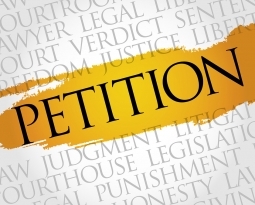Child custody orders in New York
If you are in the process of separation or divorce and you and your partner or spouse cannot agree on a custody arrangement, then that decision will have to be made by a judge after a custody petition is filed in Family Court or Supreme Court and a trial takes place or as part of your divorce action. Prior to a final determination at a trial, a temporary custody order will be made to cover the child’s interim living arrangements.
How is custody decided?
Child custody is a sensitive issue for everyone involved, and courts use the best interests of the child as a guideline when reaching a decision. This means that there is no universal standard: each case is unique and the outcome is based on the family’s individual circumstances. There are, however, common factors that judges review when determining exactly what arrangement is in the child’s best interests. They include:
- Who was the primary caretaker? Under ideal circumstances, the parent who served as the child’s primary caretaker will be allowed to continue in that role.
- Parental availability. The court will consider how much time each parent has available to spend with the child and tend to their needs.
- The child’s preferences. Although the court is not bound by them, a child’s wishes are taken into consideration. How much weight they are given depends on the age and maturity of the child.
- The mental and emotional stability of both parents. If a parent has serious mental or emotional issues, then a judge must take that into account, as the home environment could consequently be unsafe for the children.
- Domestic violence in the home. Under Domestic Relations Law 240(1), the court must take the presence of domestic violence into account when making a custody decision, even if it was never directed at the child personally.
- Drug or alcohol abuse. If either parent has a history of substance abuse and has not attempted to get treatment, then living under their roof could pose considerable risk to the child’s safety.
- History of child neglect or abuse. If one parent has been found guilty of child neglect or abuse, then custody will almost certainly be awarded to the other parent.
- Each parent’s willingness to support the child’s relationship with the other parent. Judges frown on parents who use their children as weapons to alienate and punish the other parent. This type of intentional interference can result in custody being awarded to the other parent.
Custody orders also specify the type of arrangement. The parents may receive joint legal custody, which gives both of them input to make decisions, or one may be awarded sole legal custody while the other receives a specified amount of access, known as visitation, to the child.
Can custody orders be modified?
New York courts are generally willing to consider modification requests if the parent or guardian seeking the change can demonstrate two things:
- Circumstances have changed since the original order was issued
- A modification is in the child’s best interests
If you are planning to separate from or divorce your child’s other parent and anticipate a struggle over child custody, then contact a New York family law attorney who can assist you in preparing and filing a custody petition as well as act in the best interests of both you and your children during the divorce process. The attorneys of Eskin & Eskin, P.C. have more than 40 years of combined experience in family law cases. They have a conveniently-located office in the Bronx, New York and offer free consultations. Call 718-402-5204 to set up an appointment or visit www.EskinandEskinLaw.com.





